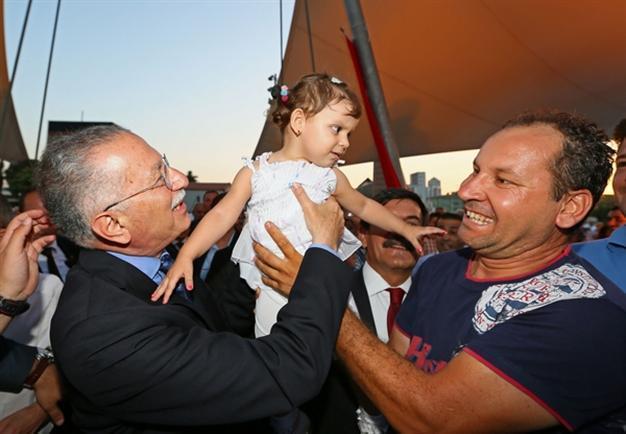BLOG: Thoughts on Turkey’s upcoming presidential elections
Zeki Ergas (*)

AA photo
In Gabriel Garcia Marquez’s novel “Chronicle of a Death Foretold,” the reader knows as he or she starts reading the novel that the character Santiago Nasar is going to be murdered, because Marquez begins at the end and then he goes to the beginning. The candidacy of Ekmeleddin İhsanoğlu made me think of Marquez’s novel because it seems to me, whether fortunately or unfortunately, that he does not stand a ghost of a chance of winning this election. Recep Tayyip Erdoğan will be elected and the only question that remains is whether or not he will be elected on Aug. 10 in the first round with more than 50 percent of the vote, or on Aug. 24 in the second round.Why is this? Here is why and how I think İhsanoğlu was selected by the opposition. There are reports, denied by Kemal Derviş, that he was the first to be suggested. Derviş’s credentials are the following: He has been a high-level official in the World Bank, an administrator of the United Nations Development Program (UNDP) and the economy minister under Bülent Ecevit. At present he is vice-president of the Brookings Institution. These credentials would be perfect for the Republican People’s Party (CHP) – less so for the Nationalist Movement Party (MHP), but they are the junior partner.
So, why was Derviş himself not chosen? Well, he is a liberal and a secularist, and Catherine, his second wife, is an U.S. citizen, when what is needed is a dyed in the wool conservative and a pious Muslim. Ekmeleddin İhsanoğlu, a former Secretary General of the Organization of Islamic Cooperation (OIC) is a serious academic and intellectual, and a conservative and a pious Muslim. So, Kemal Kılıçdaroğlu, the CHP chair, and Devlet Bahçeli, the MHP chair, went for him. But - and that is a big but - by doing so, they both betrayed the principles, integrity and vision of their parties, because essentially they are neither conservative nor religious.
Thus, our conclusion is that conservatism and religion have become the two essential and determinant elements of contemporary Turkish politics. A secular democracy is based on the separation of politics and religion. Atatürk tried to do that and for a while it seemed that he might succeed, because nobody dared to question what he wanted while he was alive. But some 75 years after his death it is now clear that he has failed to achieve his goal. In contemporary Turkey, and for the foreseeable future, religion and conservatism will be part and parcel of politics. That may not be a desirable situation, but when one looks at what is happening in the Middle East, and, to a lesser extent, even in the rest of the Islamic world, one has to wonder if André Malraux – the author of “La Condition Humaine,” (Man’s Fate) which won the Prix Goncourt in 1933, and France’s Culture Minister under Charles de Gaulle – was not right after all, when he is supposed to have said, “Le 21.e siècle sera religieux ou ne sera pas,” (The 21st century will be religious or it will not be).
(*) Dr. Zeki Ergas, a political economist and novelist, is a member of PEN International’s Writers for Peace Committee. He teaches at Hacettepe University’s MA Program of Peace and Conflict Studies. He is also writing the second tome of a family saga that takes place in Turkey, Palestine and the United States, set in 1929-1945.
















